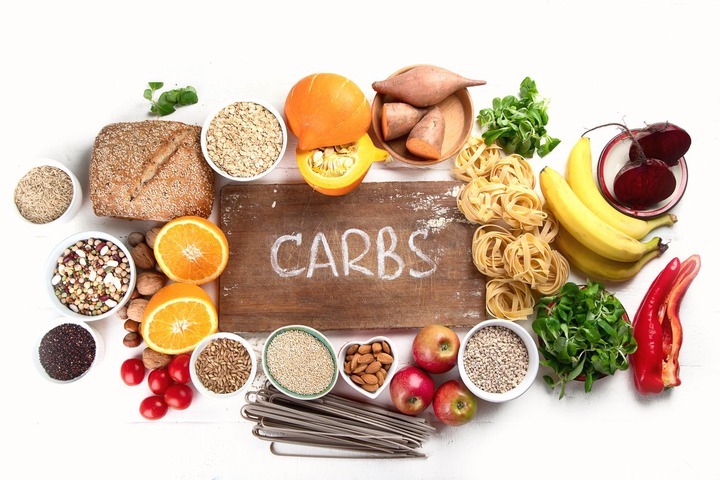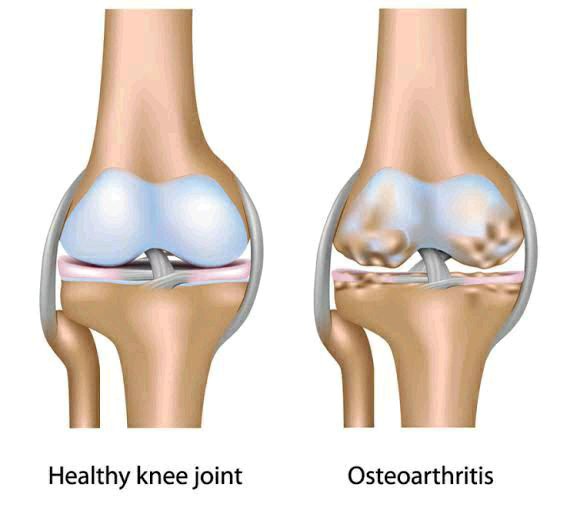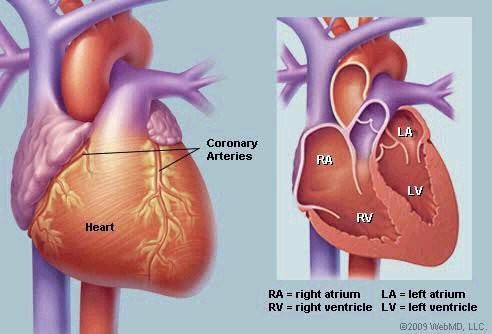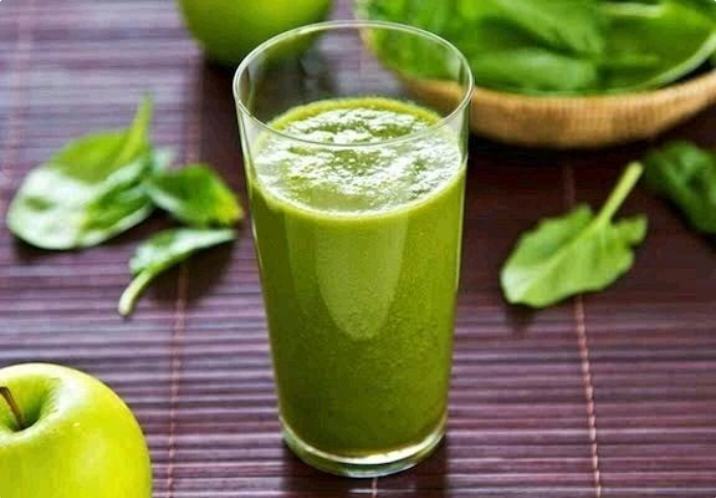Health
What Diseases Does A Deficiency Of Carbohydrates Leads To?

Have you ever wondered what might happen if you don’t get enough carbs? Carbohydrates are your body’s main source of energy, so going without them can lead to some issues. Get ready to find out as we explore what happens when you don’t get enough of this nutrient.....Read Full Article>>
Deficiency of Carbohydrates can lead to some serious health issues that you definitely want to avoid. Join me on an enlightening journey into the critical role carbs play in the human body and the problems that occur when you don’t get enough of them.
What Are Carbohydrates?
Carbohydrates
Carbohydrates, or carbs, are one of the main nutrients your body uses for energy. They’re made up of sugar molecules that provide fuel for your cells, tissues and organs. The two main types are simple carbs like sugar, honey and white flour, and complex carbs such as whole grains, vegetables, fruits and legumes.
Simple carbs are digested quickly, giving you an energy boost but often leaving you hungry again soon after. Complex carbs take longer to digest, providing sustained energy and a feeling of fullness. For good health, choose complex carbs whenever possible. They also contain fiber, vitamins and minerals.
Your body breaks down carbs into glucose, which enters your bloodstream. Insulin then helps cells absorb the glucose for energy or storage. If you don’t use the glucose right away, it’s converted to glycogen in your muscles and liver. Glycogen is tapped into when you exercise or go long periods without eating.
When your glycogen stores run out, your body will start breaking down fat and protein for energy instead. So consuming the right amount and type of carbs is key to health, performance and weight management. Most nutrition experts recommend getting 45-65% of your daily calories from carbohydrates.
How Many Grams of Carbohydrates Do You Need?
To function properly, most people need between 225 to 325 grams of carbs per day. For the average person, aim for 45-65% of your total daily calories to come from carbs.
How much do you need?
It depends on factors like your age, sex, size, and activity level. More active or athletic people typically need more carbs, while less active folks can get by with less. As a rough guide:
Sedentary women: Around 45-50% of daily calories or 180-230 grams.
Moderately active women: Around 50-55% or 230-280 grams.
Sedentary men: Around 45-50% or 270-330 grams.
Moderately active men: Around 50-60% or 330-400 grams.
You’ll want to choose high-quality carb sources like whole grains, starchy veggies, and legumes. Limit refined carbs and sugary foods which lack nutrients. Getting the right amount of carbohydrates, from the right sources, gives you energy and helps you feel your best.
Why Are Carbohydrates Important?
Carbohydrates are essential molecules that provide you with energy. They are the primary source of fuel for your brain and muscles.
Energy
Carbohydrates are broken down into glucose, which is the main source of energy for your cells. Your brain and red blood cells rely exclusively on glucose for energy.
Fiber
Complex carbohydrates provide dietary fiber, which aids digestion and helps keep you feeling full. Fiber can help lower cholesterol and control blood sugar levels.
Nutrients
Carbohydrate- containing foods often provide other nutrients like B vitamins, antioxidants and minerals such as potassium and magnesium.
Protein Sparing
When you eat adequate carbohydrates, your body relies less on protein for energy and uses it primarily for building and repairing muscle, bone, blood and cartilage.
Fat Burning
Carbohydrates stimulate the production of insulin, which helps move glucose into your cells. This also causes your body to store excess calories as glycogen and fat. So for weight loss, balanced carb intake is key.
Glycogen
Carbohydrates are stored in your liver and muscles as glycogen, which provides fuel for physical activity. As you deplete glycogen stores during exercise, eating carbs helps replenish them.
Heart Health
Soluble fiber from carbohydrate-rich foods can help lower high cholesterol levels and may reduce heart disease risk.
Satiety
Carbohydrates increase serotonin, a feel-good brain chemical that helps you feel satisfied and full. So including healthy carbs in your diet can aid weight maintenance and prevent overeating.
What does Deficiency of Carbohydrates Mean?
A carbohydrate deficiency means your body and brain don’t have enough fuel to function properly. Your body needs carbs to produce glucose, which is the primary energy source for your cells. Without this, you may feel extremely tired, irritable, and unable to concentrate. Your body may start breaking down fat and protein for energy instead, which is not sustainable and can cause unwanted weight loss and muscle loss over time.
The good news is, a carbohydrate deficiency can often be easily corrected by making some simple diet changes to boost your carb intake from sources like grains, starchy veggies, and legumes. Be sure to also stay properly hydrated and get enough rest. If symptoms are severe or persistent, consult your doctor.
Diseases Caused by the Deficiency of Carbohydrates
A diet lacking in carbs can lead to some unhealthy side effects. Here are eight diseases linked to low carb diets:
Fatty liver disease occurs when fat builds up in liver cells. Without carbs, the liver has to break down fat for energy which can cause a buildup of fat in the liver.
Kidney stones form when there are high levels of calcium, oxalate, and uric acid in the urine. Low carb diets may alter urine chemistry and increase the risk of kidney stones.
Gout is a form of arthritis caused by high uric acid levels. Low carb diets can raise uric acid levels and lead to painful gout symptoms like joint inflammation and swelling.
Nutritional deficiencies can develop since many nutrients like fiber, B vitamins, and certain minerals are found in carb-containing foods. Supplements or a balanced diet may be needed to prevent deficiencies.
Diabetic ketoacidosis occurs when ketones build up in the blood and urine. While ketosis from low carb diets is usually benign, high ketone levels can be dangerous for diabetics and lead to this life-threatening condition.
Constipation and diarrhea may occur since low carb diets often lack fiber and prebiotics which aid digestion and promote regularity. Sufficient hydration and probiotics may help improve gut health and bowel movements.
Fatigue and dizziness can happen when transitioning to a low carb diet as your body adapts to using fat and ketones for fuel instead of carbs. These symptoms are usually temporary but staying properly hydrated and consuming enough electrolytes can help.
A carbohydrate deficiency can contribute to hypoglycemia or low blood sugar. Since carbs are converted into glucose, which your body uses for energy, not enough carbs can lead to fatigue, dizziness, and difficulty concentrating.
What are the Main Causes of Carbohydrate Deficiency?
These are some of the causes of carbohydrate deficiency:
Diet low in starchy foods and sugars
Not eating enough foods high in carbohydrates like grains, starchy veggies and fruits can lead to a deficiency. Starchy and sugary foods are the main sources of carbohydrates, so lacking them in your diet means you’re missing out on a major macronutrient your body needs for energy.
Malabsorption issues
Certain health issues like Celiac disease, Crohn’s disease or ulcerative colitis can impair your ability to absorb carbohydrates and other nutrients from the foods you eat. This malabsorption leads to a deficiency since your body isn’t able to make use of the carbs in your diet.
Excessive exercise
Too much intense exercise, especially cardio exercise, can deplete your body’s carbohydrate stores and lead to a deficiency. Athletes and very active individuals need to consume more carbohydrates to match their higher activity levels and energy needs. If they don’t, it can result in a deficiency and fatigue.
Pregnancy or breastfeeding
During pregnancy and breastfeeding, your body has an increased need for carbohydrates to support your baby’s growth and your increased metabolism. If you don’t consume enough carbohydrates from your diet, it can lead to a deficiency. Most doctors recommend increasing your carb intake during this time to prevent any deficiencies.
Signs and Symptoms of Carbohydrate Deficiency
Some common signs of a carb deficiency include:
Fatigue and Low Energy
Without enough carbs, your body won’t have the fuel it needs for energy. You’ll feel tired, sluggish and unable to focus. Carbohydrates are the main source of glucose, the primary energy source for your brain and muscles.
Irritability and Mood Changes
Carbohydrates play an important role in the production of serotonin, the “feel-good” hormone in your brain that helps regulate mood and make you feel happy. Low carb intake can lead to irritability, mood swings and even depression.
Muscle Cramps
Carbohydrates help maintain electrolyte balance and proper muscle function. If you’re carb deficient, you may experience painful muscle spasms and cramps, especially during physical activity.
Insomnia and Sleep Problems
Carbohydrates enhance the production of tryptophan, an amino acid that helps you sleep. They also regulate your circadian rhythm and sleep-wake cycles. Without enough carbs, you may struggle with insomnia, restlessness and interrupted sleep.
Digestive Issues
Fiber from carbohydrate-rich whole grains, fruits and vegetables helps promote regularity and healthy digestion. A deficiency in carbs can lead to constipation, diarrhea, bloating, gas and stomach pain.
Increased Disease Risk
A long-term low carb diet may raise the risk of certain health conditions like heart disease, cancer, and diabetes over time. Carbohydrates provide nutrients that are essential for overall health and wellness. Moderation is key.
Constant Hunger
Although carb deficiency reduces appetite regulation, your body still needs energy. This often leads to near constant hunger, cravings, and preoccupation with food.
Ketosis
When your body is starved of carbs, it breaks down fat for fuel instead, producing ketones. Ketosis can cause nausea, vomiting, stomach pain and a fruity breath odor. Ketosis is temporary but can be dangerous if it becomes chronic.
Impaired Brain Function
Your brain requires a steady supply of glucose to operate properly. A lack of carbohydrates impairs cognitive abilities like thinking, memory, focus and concentration over the long run. Some decrease in mental performance is inevitable on a very low carb diet.
Cold Sensitivity
Carbs provide raw materials to support a healthy metabolism and body temperature regulation. A deficiency can make you more sensitive to cold temperatures. You may frequently feel chilled.
How to Prevent Carbohydrate Deficiency
To prevent a carbohydrate deficiency, focus on the following tips:
Eat more starchy foods like rice, oats, beans, lentils, potatoes, corn and squash. These provide fiber, vitamins and minerals along with carbohydrates. Aim for 6-11 servings per day.
Add fruit to your diet. Berries, bananas, oranges and apples contain natural sugars and carbs. Have 2-4 servings of fruit each day.
Choose whole grains over refined. Whole wheat bread, brown rice and quinoa have more nutrients than white versions. Make at least half your grain servings whole.
Watch your portion sizes. Most people need 45-65% of calories from carbs which is 225-325 grams for a 2000 calorie diet. Measure servings to ensure you get enough.
Limit sugary and fatty foods which crowd out more nutritious options. These provide empty calories but lack nutrients.
Stay hydrated and drink plenty of water. Dehydration can cause fatigue and negatively impact your energy levels. Aim for 6-8 glasses per day.
Consider nutritional supplements. If needed, you can take carbohydrate supplements in powder or bar form to boost your intake. But whole foods are always the best option.
For long term prevention, make balanced nutrition and self-care a priority. Managing stress, getting enough sleep and limiting alcohol or caffeine intake help your body utilize the carbs you consume.
Following these tips will help ensure you get adequate carbohydrates in your diet to maintain health, energy and prevent deficiency. Be sure to also eat a balanced diet with lean proteins, healthy fats, vitamins and minerals.
Healthy Sources of Carbohydrates in Nigeria
Some of the healthiest sources of carbohydrates in Nigeria include:
Yams are starchy roots high in fiber, vitamins and minerals. They provide energy and help regulate blood sugar.
Rice & Beans are staples in Nigerian cuisine, providing protein, fiber and various nutrients. Brown rice has more fiber and nutrients than white rice.
Plantains resemble bananas but are richer in starch and often cooked. They contain potassium, vitamin B6, and vitamin C.
Cassava, also known as manioc or yuca, is a root vegetable high in carbs and used to make fufu. It’s a source of potassium, phosphorus and vitamin C.
Corn and millet are gluten-free grains used in porridges like ogi, masa, and agidi. They provide B vitamins, magnesium and selenium.
Pumpkin, squash and leafy green veggies like kale and spinach provide healthy, complex carbs. They are high in vitamins A, C, E, folate and other nutrients.
Fruits like papaya, mango, pineapple and bananas provide natural sugar, fiber, antioxidants and electrolytes.
Tubers such as sweet potatoes are naturally sweet and high in vitamin A, vitamin C and manganese. They help boost immunity and eye health.
Conclusion
So in the end, carbs really do matter. Getting enough of the right kinds in your diet is crucial for staying healthy and avoiding serious diseases. While you don’t need to start counting every gram of carbs you eat, being aware of good sources of complex carbs and limiting simple or processed carbs can go a long way. Focus on incorporating whole grains, beans, lentils, fruits and veggies at most meals and snacks. Keep an eye on portions of starchy veggies and sweets. And make sure to pair carbs with protein, fat or fiber to help control blood sugar spikes. Taking these simple steps helps ensure your body has the carbs it needs to function at its best every day.
Health
JUST IN: Wife vows revenge after husband of 5 years infects her with HIV

A Nigerian wife has taken to the social media platform X, formerly known as Twitter, to reveal her plans for revenge after her husband of five years allegedly infected her with HIV.....Read Full Article>>
The anonymous post detailed her grievances and the drastic steps she intends to take in response to the betrayal. According to the woman, she has been married to her husband for five years, and they share two children.
She claimed to have made significant sacrifices for her husband, including giving him her first ₦5 million earnings. Despite her efforts, she discovered that her husband cheated on her and infected her with the virus.
In her post, she outlined her plans to change all the property documents, including those jointly purchased and solely in his name, to her name.
She also disclosed her intention to leave the country with their children next year, never to return, and without informing her family, who previously advised her to remain in the marriage despite her husband’s infidelity.
The wife wrote: “This man I married gave me HIV within just five years of marriage. I built with this man and gave him everything, including my first ₦5 million. Despite all that, this is how he repaid me. Once I change all the property documents to my name—including those I bought for him and the ones we bought together—he’ll be back to square one.”
“I would have infected all his family members, but instead, I’ll make sure he suffers a stroke. I’m leaving the country with my two children next year, never to come back, and I won’t tell anyone, including my family. They all advised me to stay with him when I found out he was cheating. When we were broke, this man didn’t cheat, but after I supported him, this is my reward.”
The post sparked a flurry of reactions, with many concerned individuals taking to the comments section to share their thoughts on her plight and plans.
See some reactions below:
@popterai:
“Some men na disappointments… May God be with you babe.”
@revi_ofthehills:
“She should play her own game. He deserves it. But she should leave his family members out of it. I know she’s hurt but no be their fault.”
@ogocyndy2:
“This is really sad. I could feel her pains. Omo do to him as you please, he is w!cked.”
@MercyAgera:
“Take it easy on you dear, just leave and don’t add to his troubles. The Lord is watching let HIM be the judge.”
@XlChyno:
“Wow, some things I see here got me wondering. Its crazy out there.”
@Cappucchino443:
“Men supporting men. This is so sad. Omo imagine say na your sister. You go advise your sister to forgive him? You ma shey you go forgive the man?? Abeg make we no dey comment rubbish for here. Na HIV ooo.”
@ancientPATHH:
“This is evil. No woman who truly built with a man should go through this. If someone stayed, believed and grew with you, you should also make sacrifices for them.”
@Divaisabeauty:
“Nigerian men are the worst when they are with Nigerian women. The moment they see white skin they become ice cold, cos they know even before divorce and sharing of his property, gun fit each him body. Marrying a Nigerian man is =endurance, patience and long suffering.”
SEE POST:
Health
Heal Your Knees And Rebuild Your Bones And Joints With This Powerful Mixtures

It is a widely held belief that once your joints begin to get more unstable, there is no way to stop the interaction from taking place even if you try your hardest. In most cases, the purpose of treatment is to alleviate the patient’s suffering as much as possible, bring down their overall level of irritation, and halt the advancement of the condition.....Read Full Article>>
The medications that are used to achieve this can be quite effective; however, they also carry the risk of unintended side effects such as acid reflux, stomach ulcers, damage to the liver or kidneys, and an increased risk of coronary events.
This is because these medications carry the potential for adverse reactions.
Our bodies are susceptible to experiencing irreparable damage over time as a result of the general wear and tear that we put on them on a daily basis, and as a consequence, we often endure agony and suffering as a result of this. Because of this, our joints have become less flexible, and we frequently experience pain and discomfort in them, particularly in the knees. In particular, our knees are particularly susceptible to this condition. The development of joint pain can be brought on by a variety of different circumstances, such as aging, injuries, or an unfavorable body position, and it can bring about a great lot of suffering and trouble in daily life. This problem needs to be fixed as early as humanly possible in order to avoid creating any additional issues. Despite this, there is a natural therapy that can be utilized that is an excellent remedy for the aggravation that is felt in the knees, and it is a treatment that can be used.
The following is the recommended configuration for it:
To make this recipe, you will need three tablespoons of chopped raisins.
40 grams of pumpkin seeds taken from inside the pumpkin
2 tablespoons of unflavored gelatin in the tablespoons.
a quantity of sesame seeds that is equivalent to four tablespoons.
200 milliliters of honey. Honey.
flaxseed meal equivalent to 8 tablespoons
In order to get everything ready, all you have to do is throw all of the ingredients into a blender and give it a good whirl until everything is combined. After that, the mixture is poured into a glass jug, and after that, it is placed in the ice chest to be kept cold.
Detailed, easy-to-follow instructions on how to make and use:
You must take in one spoonful of the combination at each of your two regular meals. The first time should be done first thing in the morning on an empty stomach, and the second time should be done first thing in the morning before lunch. Because of this syrup, digestion will become more efficient, and the bones and joints will have a more robust feeling. You will see major gains in a very short amount of time, and this wonderful end is a result that is certain to occur.
Gelatin
The primary components of gelatin are the proteins that are extracted from skin, tendons, and bones. It is used as a thickening agent in a broad variety of different food preparations, which is one of its primary functions. Collagen, which is one of the fundamental structural components of bone and ligament, can be found in rather high concentrations in this substance. It may be helpful in the prevention of mileage and the protection of the joints.
Honey The high cell reinforcement content of honey has a mitigating effect, and this effect can be seen. Honey’s high cell reinforcement content. Honey serves, more or less, as the sweet base for this recipe and possesses the typical additive capabilities. Honey can also be used as an ingredient.
Health
These 6 Fruits Can Improve Your Vision If Consumed Daily

We often underestimate the prevalence of the ailment known as poor vision. We are inclined to attribute it to the abrupt rise in the use of mobile phones, longer working hours spent in front of computers, or excessive time spent watching television.....Read Full Article>>
These factors do have an effect on one’s vision, but we mustn’t ignore the fact that there is also another significant factor that plays a role in the degeneration of one’s eye health.
A considerable impact can also be had on one’s vision if they are malnourished or undernourished. Just like the rest of our bodies, our eyes need a certain amount of nourishment in order to work effectively.
It is essential to incorporate foods into our diet that have the potential to have a positive effect on our eyes because they take in such a large amount of what we eat. Some fruits have more beneficial nutrients for the eyes than others, but fruits in general are a treasure trove of nutrients, and fruits in particular are a rich source of these nutrients. Because there are so many different kinds of fruits available, it can be difficult to decide which ones are best for your eyes.
The following is a list of fruits that are said to be good for the health of your eyes:
1. Mango
This delicious summer fruit is rich in vitamin A, an antioxidant that guards against bacterial infections and disorders that can affect the surface of the eye. Dryness and clouding are both symptoms of a deficiency in vitamin A, which puts the health of the eyes in jeopardy.
2. Apricots
This fruit has a significant amount of beta-carotene, an antioxidant that has been shown to retard the aging process of the eyes. Apricots also include a wide range of other minerals, such as zinc, copper, vitamin C, and vitamin E, which all contribute to the prevention of macular degeneration when combined with one another.
3. Blueberry
The fruit with a sweet and tart taste has potent anti-inflammatory properties and the ability to regenerate rhodopsin, both of which are beneficial to the blood vessels in the eyes. The presence of anthocyanins in this fruit contributes to the maintenance of open retinal arteries.
4. Papaya
A wonder food that is beneficial to overall eye health is papaya since it contains a high concentration of minerals, antioxidants, and enzymes.
5. Orange
In terms of the concentration of vitamin C, which has been shown to play a role in the prevention of cataracts, it ranks first among citrus fruits. Additionally, the high water content of this fruit ensures that the eyes remain hydrated.
6. Avocado
Avocados, thanks to the high levels of the compounds lutein and zeaxanthin that they contain, are beneficial for enhancing night vision and protecting the eyes from the negative effects of UV light
Health
Frequent s£x doesn’t reduce prostate cancer, experts warn

Medical experts have raised the alarm over the increasing cases of prostate cancer across the country, advising Nigerians to always seek medical attention on time.....Read Full Article>>
The experts, who spoke to Saturday PUNCH at a recently concluded 29th Annual General Meeting and Scientific conference of the Association of Urological Surgeons, Nigeria, held in Enugu, dispelled the notion that frequent sex reduces prostate cancer or prostate enlargement in males, describing it as a fallacy.
Though a Consultant Urologist and Head of Surgery Department at the Lagos State University College of Medicine, Prof Omisanjo Oluwafunmilade, encouraged men to be sexually active as much as they can, however, noted that “it is a fallacy to assume that you are able to have sex these number of times in a week, in a month or in a year, you will not develop prostate cancer”.
He noted, “There are studies that are suggesting that men who have frequent ejaculations have a slightly lower risk of developing prostate cancer compared to men who have less frequent ejaculations. But we also know that some other studies have found this not to be true.”
He emphasised that even if there’s any benefit in whatever protective effect one may get by frequent ejaculation, it could always be ruined by other factors, including genetics.
“So we encourage men to be sexually active in a healthy relationship as much as they can but it is not correct that once you have a particular amount of ejaculations or sexual exposure, you will not develop prostate cancer.
“Data has not consistently shown that. There are studies that suggest it may be protective; other studies have not confirmed that,” Oluwafunmilade stated.
He said that the number of prostate cancer cases that have been diagnosed in Nigeria has increased in all regions across the country. “Prostate cancer is more common or to correctly put, it is diagnosed more commonly now compared to before,” he disclosed.
Similarly, a Consultant Urologist at the University of Ilorin Teaching Hospital, Dr Oseni Ismaila, stated that prostate issues could be treated more especially when the patients present themselves in the hospital early.
He said it was not true that frequent sex prevents prostate cancer or prostate enlargement because there was no confirmed scientific basis for that.
“There’s a presupposition that it is either as a result of family lineage or some ongoing changes in the body. All men are at risk of developing an enlarged prostate – whether just an enlarged prostate or prostate cancer all men are at risk.
“The only man that is not at risk is the one who is castrated when he is a small boy, otherwise anybody that has two balls is at risk of developing an enlarged prostate at any time,” he stated.
Health
Exceptional Benefits Of Boiling Guava Leaves And How To Use

Guava leaves are an excellent source of natural compounds that have been used for centuries in traditional medicine for their various health benefits. These leaves contain essential nutrients, antioxidants, and anti-inflammatory properties that can help treat a wide range of illnesses. One of the most popular ways to use guava leaves is by boiling them and drinking the water. In this article, we will discuss the benefits of boiling guava leaves and drinking the water.....Read Full Article>>
1. Promotes Weight Loss
Guava leaves are rich in fiber, which helps in promoting weight loss. Drinking guava leaf water can help regulate digestion, increase metabolism, and reduce appetite, which can help you lose weight naturally.
2. Boosts Immunity
Guava leaves contain high levels of vitamin C, which is known for its immune-boosting properties. Regular consumption of guava leaf water can help boost your immunity and prevent various diseases.
3. Lowers Cholesterol
Guava leaves contain compounds that can help lower cholesterol levels in the blood. Drinking guava leaf water regularly can help reduce LDL (bad) cholesterol levels and increase HDL (good) cholesterol levels, which can help reduce the risk of heart disease.
4. Controls Blood Sugar Levels
Guava leaves contain compounds that can help regulate blood sugar levels. Drinking guava leaf water regularly can help reduce the risk of type 2 diabetes and improve insulin sensitivity.
5. Relieves Menstrual Pain
Guava leaves contain compounds that have anti-inflammatory properties that can help reduce menstrual pain. Drinking guava leaf water regularly can help alleviate cramps and other symptoms associated with menstruation.
6. Reduces Stress
Guava leaves contain compounds that can help reduce stress and anxiety. Drinking guava leaf water regularly can help promote relaxation and improve overall well-being.
7. Improves Skin Health
Guava leaves are rich in antioxidants that can help improve skin health. Drinking guava leaf water regularly can help reduce the appearance of wrinkles, fine lines, and other signs of aging.
Boiling guava leaves and drinking the water is an easy and effective way to reap the benefits of this natural remedy. Regular consumption of guava leaf water can help promote weight loss, boost immunity, lower cholesterol, regulate blood sugar levels, relieve menstrual pain, reduce stress, and improve skin health. However, it is important to consult a healthcare professional before adding guava leaf water to your diet, especially if you have any underlying health conditions or are taking any medications.
Health
Dear Ladies, See The Easy Ways To Lighten Your Inner Dark Thighs

With regards to being a woman, something that is generally vital to us is our body, and we make every effort to keep it flawless and immaculate consistently. With regards to being a woman, our bodies are something that are mean quite a bit to us. Each lady has a similar desire: to have a body that she can be pleased with, and to have the option to say that she is calm in her own skin. This is a general objective for all ladies.....Read Full Article>>
At the point when individuals come to see us, the most well-known issue they have is that they have dull inward thighs or a dim swimsuit line, the two of which can rather humiliate. We can treat both of these issues. As an immediate consequence of this, numerous ladies have created sensations of disquiet, and subsequently, they continually want to disguise themselves. As an immediate result of this, numerous ladies have created sensations of disquiet.
1. In the event that you are overweight, you have a more serious gamble of creating dim inward thighs due to the expanded contact that happens between your laps. The skin obscures because of the erosion, which is the justification for this peculiarity.
2. An adjustment of the shade of the skin might happen because of inordinate perspiring, especially when this condition is joined by the wearing of cumbersome dress.
3. Since over-shaving can cause staining, you ought to attempt to try not to do it in that specific region and on second thought utilize a hair evacuation treatment all things considered.
Guidance for drawing out the shapes of the internal thighs
1. Cucumber
Subsequent to cutting your cucumber, quickly apply the uncovered tissue of the cucumber to the impacted locale and let it there for a couple of moments prior to washing it off with water. On the off chance that you need the best impacts conceivable from this training, you ought to perform it two times per day, once in the first part of the day and once in the prior night heading to sleep. Your skin will indeed resemble being sound.
2. A piece of the strip of an orange
Notwithstanding the notable job that it plays as a fading specialist, the strip of an orange can likewise be used as an exfoliant for the skin. To make a glue out of the orange strip, you should simply accept the strip, permit it to dry totally prior to crushing it, and afterward join the ground strip with some honey and water. Presto! You currently have a glue out of the orange strip.
You ought to wash this glue off after first applying it to the impacted locale, allowing it to sit for a couple of moments, and afterward eliminating it from the impacted region. Continuously do your exercises in this design consistently.
3. Aloe vera is one more kind of normal fixing that can ease up the skin. Subsequent to cutting the aloe vera plant fifty, scratch the gel out of the center of the plant, and apply it to the area that should be peeled. Subsequent to saving it for a couple of moments, you ought to give the locale a total cleaning.
4. Lime
Lemon, similar to orange, can be utilized to shed the skin; essentially apply the juice to your skin and wash it off following a couple of moments. Orange is one more natural product that can be utilized in a similar way. Orange is one more organic product that can be used in a similar way as recently portrayed.
5. Tomatoes.
In the wake of cutting a tomato down the middle and applying the juice to the impacted region, clean up following a couple of moments have passed. Tomatoes are a characteristic solution for an assortment of skin conditions.
Health
When Your Heart Is In Danger Your Body Will Give You These 11 Signs

The following are the indications:....Read Full Article>>
1. The inconvenient nature of the interior of the Chest.
When a notification in the chest causes you inconvenience, you should acknowledge that there is an issue. The muscle was under tension. Unrelenting chest pain can be brought on by a weakening of the muscle mass and ligaments across the edges, and I will demonstrate the state of my heart in this paragraph.
2. Excruciating pain in the stomach and illness.
Complaints, intestinal pollution, strain, and discomfort, as well as chronic gastrointestinal issues, may be present. In most cases, queasy stomach and feelings of sickness are only temporary and resolve on their own.
3. The pain that spreads from the chest to the arm is another indication that the coronary heart is a source of danger.
4. some words of advice
Your tips may be an indication that there are problems with your bloodstream. Your brain need oxygen-rich blood in order to maintain its ability to be flexible. Otherwise, you run the risk of becoming unstable or possibly passing out.
Blood clots, blocked blood vessels, an unhappy heart, and irregular heartbeats are some of the factors that might contribute to a blood supply that is inadequate to the brain.
5. an issue with the throat or the jaw
Glossopharyngeal neuralgia is a painful condition that can be brought on by an illness that affects only a portion of your throat after swallowing, known as “gulping wake.”
This ailment can manifest itself on one side of the ears, and it can be traced back to the tongue, tonsil, or jaw. This is a rare circumstance, which has the potential to produce rapid and intense suffering.
6. Engineering.
a temporary weakening or deterioration of organs, tissues, or cells following an unneeded attempt or provocation.
7. Snoring while you sleep at the same time.
Wheezing can be caused by a number of different things, including but not limited to the oral and sinuse systems, the consumption of alcoholic beverages, sensitivity, cold, and weight.
While you are resting and gradually moving into a deeper state of relaxation, the muscles inside of your mouth, including those that are sensitive to flavor, as well as your tongue and throat, relax.
8. Persistent and Excessive Sweating
Diabetes can cause damage to nerves, and as a result, certain people are “infected” continuously by the nerves that manage their sweat organs. This could result in hyperhidrosis, which is an abnormally high level of sweating.
9. A long and drawn-out cough.
There are a variety of circumstances that may warrant a cough waiting interval.
10. The length of the legs, toes, and legs is reduced.
Sometimes a sickness will manifest itself, such as one that affects the heart, liver, or kidneys.
If your lower legs swell up during the night, it could be a sign that your right coronary heart isn’t doing a good job of holding on to salt and water. Gravity causes fluid to mix more in the feet and lessens the amount of fluid in the legs, but fluid can also build in the center of the body and in the chest.
a racing or fluttering sensation in the heart
The majority of the time, they are brought on by anxiety and discomfort, but they can also be brought on by consuming an excessive amount of coffee, nicotine, or alcohol.
They are also possible to arise while you are pregnant. In exceptional instances, palpitations can be an indicator of an additional correct coronary heart problem. If you are experiencing palpitations, you should make an appointment with your health care practitioner
Health
Why You Should Boil Pawpaw Leaves And Drink The Water Regularly In Moderation

Pawpaw, also known as papaya, is a popular fruit that is enjoyed all around the world. However, many people are unaware of the numerous health benefits that pawpaw leaves offer. Boiling pawpaw leaves and drinking the water regularly in moderation can be highly beneficial for your overall health. In this article, we will discuss the reasons why you should boil pawpaw leaves and drink the water regularly in moderation.....Read Full Article>>
1. Boosts Immunity
According to WebMD. Pawpaw leaves are rich in antioxidants, vitamins, and minerals that can help to boost your immune system. Drinking pawpaw leaf water can help to protect your body from harmful pathogens and infections.
2. Anti-inflammatory properties
Pawpaw leaves contain papain and chymopapain, two enzymes that have potent anti-inflammatory properties. Drinking pawpaw leaf water can help to reduce inflammation in the body, which can help to alleviate a wide range of health conditions, including arthritis and joint pain.
3. Lowers Blood Sugar Levels
Pawpaw leaves contain compounds that have been shown to help regulate blood sugar levels. Drinking pawpaw leaf water can be highly beneficial for people with diabetes or those who are at risk of developing diabetes.
4. Helps with Digestion
Pawpaw leaves contain papain, an enzyme that can help to break down protein in the body. Drinking pawpaw leaf water can help to improve digestion and alleviate digestive issues such as constipation, bloating, and indigestion.
5. Reduces Risk of Cancer
Pawpaw leaves contain acetogenin, a compound that has been shown to have anti-cancer properties. Drinking pawpaw leaf water can help to reduce the risk of cancer and protect the body from harmful cancer-causing agents.
6. Good for Skin Health
Pawpaw leaves are rich in vitamin C, which is essential for skin health. Drinking pawpaw leaf water can help to improve skin elasticity, reduce wrinkles, and promote a healthy, glowing complexion.
7. Reduces Stress and Anxiety
Pawpaw leaves contain compounds that have a calming effect on the body. Drinking pawpaw leaf water can help to reduce stress and anxiety, promote relaxation, and improve sleep quality.
Boiling pawpaw leaves and drinking the water regularly in moderation can be highly beneficial for your overall health. It can boost your immune system, reduce inflammation, regulate blood sugar levels, improve digestion, reduce the risk of cancer, improve skin health, and promote relaxation. However, it is essential to consume pawpaw leaf water in moderation and consult with your healthcare provider before adding it to your diet
Health
Why Drinking Bitter Leaf Water Can Be Dangerous

Bitter leaf water, derived from the leaves of the bitter leaf plant (Vernonia amygdalina), has gained popularity for its purported health benefits. However, it is essential to explore not only its advantages but also potential drawbacks that may arise from its consumption.....Read Full Article>>
1. Bitter Taste:
As the name suggests, bitter leaf water possesses a strong and distinct bitter taste, which can be. unappealing to many individuals. This taste may deter people from incorporating it into their regular diet, affecting their willingness to reap its potential benefits.
2. Potential Allergic Reactions:
Some individuals may be allergic to compounds found in bitter leaf water, leading to adverse reactions such as itching, swelling, or difficulty breathing. It is crucial to exercise caution and consult with a healthcare professional if allergic reactions are suspected.
3. Medicinal Interactions:
Bitter leaf water is often consumed for its medicinal properties, but it may interact with certain medications. Individuals taking specific drugs should seek advice from their healthcare provider to prevent any potential adverse effects resulting from drug interactions.
4. Over consumption and Digestive Issues:
Excessive consumption of bitter leaf water may lead to digestive issues, including nausea, diarrhea, or stomach cramps. It is crucial to maintain moderation in intake and monitor one’s body’s response to avoid discomfort.
5. Not Suitable for Everyone:
Pregnant women and individuals with certain medical conditions may need to exercise caution when considering bitter leaf water consumption. It is advisable for such individuals to consult their healthcare provider to determine whether it is safe for them.
6. Lack of Scientific Evidence:
While bitter leaf water is traditionally believed to have various health benefits, there is a notable absence of extensive scientific research validating these claims. Relying solely on traditional beliefs without robust scientific evidence may pose a risk of overlooking potential drawbacks or side effects.
Conclusion:
While bitter leaf water is celebrated for its potential health benefits, it is essential to approach its consumption with caution. Individuals should be mindful of the potential disadvantages, including allergic reactions, digestive issues, and medication interactions. Consulting with a healthcare professional before incorporating bitter leaf water into one’s diet is advisable to ensure that it aligns with individual health needs and circumstances.
Health
A Very Good Natural Medicine For High Blood Pressure And Cholesterol

Supposing that you suffer from high cholesterol or high blood sugar levels, the following traditional Amish remedy is the miracle that you have been searching for! Moreover, it is amazing for your overall health, because it boosts the immune system and treats various other health problems.....Read Full Article>>
This is how you can prepare this natural health bomb:
Ingredients needed:
– 1 piece of ginger (grated)
– 1 teaspoon of lemon juice
– 1 garlic clove (grated)
– 1 teaspoon of apple cider vinegar
– 1 teaspoon of organic honey
Instructions for preparation:
You need to simply mix all the ingredients. Then, refrigerate the mixture for about 5 days.
Usage:
After the 5 days, consume this remedy two times a day, in the morning, before the breakfast, and in the evening, before dinner. Do not take it more than 3 times daily.
After just a week, you are going to experience miraculous effects! The blood pressure is going to be normalized, as well as the blood sugar and cholesterol levels. In addition, your entire body will be much healthier
-

 Latest News1 month ago
Latest News1 month agoBREAKING: Journalist Who Exposed Army Chief Lagbaja’s Death In Serious Trouble As Military Reportedly Issues Unexpected Order
-

 Latest News3 days ago
Latest News3 days agoBREAKING: Finland To Sue Tinubu For Falsely Accusing Simon Ekpa? See Facts As Biafrans’ Claim Goes Viral
-

 Latest News2 months ago
Latest News2 months agoSUNDAY Turns BLOODY As Simon Ekpa’s Boys Reportedly Slaughter Dozens Of Soldiers; SEE Details
-

 Health2 months ago
Health2 months agoBitter Leaf Water is Not For You, Should Stop Drinking If You Belong to These Category
-

 Latest News15 hours ago
Latest News15 hours agoTake Care of Yourself See How Man Slumps, Dies While Walking
-

 Latest News3 days ago
Latest News3 days agoBREAKING: Filling Station To Adjust Their Pumps As NNPC Announces News Fuel Price; Details Below
-

 Latest News4 days ago
Latest News4 days agoJUST IN: The Pastor Of Dominion City Church, David Ogbueli Calls Out 100 People During Service And Gives Them N10m
-

 Latest News2 months ago
Latest News2 months agoMohbad’s Wife Is PREGNANT? – Late Singer Wife Finally Breaks Silence On Viral Report, Here’s What She Said
































































